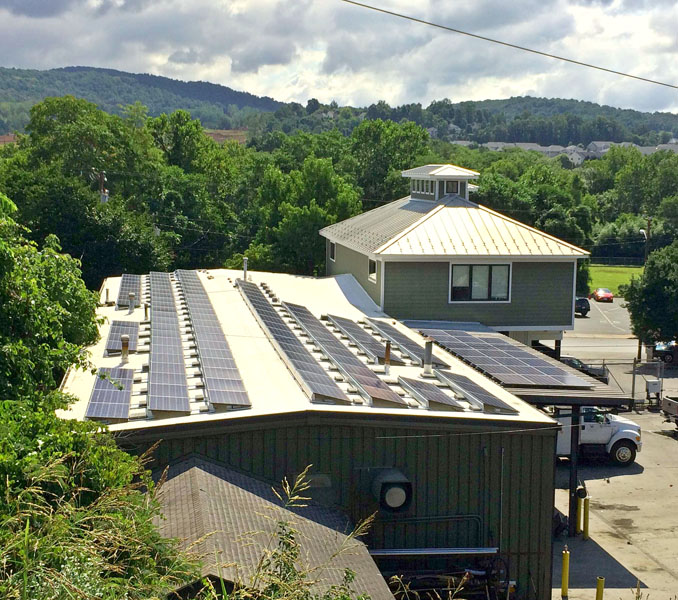(Picture: Engineering Solutions provided a structural analysis prior to S. L. Williamson Company’s solar panel addition)
The use of solar panels is a growing trend across the United States as they have become cheaper, more efficient, and more attainable for the average American. Choosing to use solar power has numerous benefits, both environmental and economical. Solar panels improve the environment by limiting the use of fossil fuels to generate electricity. Economically, solar panels allow for lower electricity costs, reduced taxes, and higher valued homes. Now with solar purchase power agreements (PPAs) and solar leasing options, using solar power is more feasible and desirable than ever before.
In 2016, the number of homes using solar panels increased to 1 million from only 30,000 in 2006, with a compound annual growth rate of 76%. Solar electricity still only makes up a tiny portion of all electricity generated, but has become increasingly popular as the cost of solar panels drops. At $9 per watt, solar panels were once incredibly expensive, but today, they can be purchased at only $3.79 per watt and generally have a payback period of only seven years.
The rise in solar power usage can also be attributed to the Solar Investment Tax Credit (ITC). Companies and individuals who purchase solar systems outright can claim a 30% federal tax credit for solar systems on residential and commercial properties. The ITC is a major incentive to switch to solar power. In fact almost 4 million homes are predicted to switch to solar power by 2023, at which point the residential ITC will cease to exist. Anyone hoping to claim that 30% tax credit should definitely consider purchasing solar panels in the next seven years!
In addition to the lower costs and tax credit, many individuals went solar when solar companies started offering lease programs and loans. In Virginia, many financing companies began offering specialized loans for solar panels. According to Taylor Brown, co-founder of SunTribe Solar, “A major driver for going solar are the financing groups that offer financing up to 15% of the solar system.” Many who install solar panels also use pay-as-you-go financing. This financing system allows homeowners to simply pay a monthly fee to a solar company who will own, install, and maintain the solar system, often resulting in lower electricity costs for the homeowner.
Installing solar panels can be completed in three straightforward steps. First, the solar company must send an engineer to evaluate the residence and determine if it is suitable for solar power. The second step is to install the inverter which collects the electricity generated by the panels and sends it to the grid. This device is usually attached to the garage wall and replaced every ten years or so. Lastly, the solar panels must be mounted to the roof. This step takes up to two days and involves fixing multiple frames to the roof, then fixing the panels to the frames. Once the panels are thoroughly the inspected, the installation process is complete!
Choosing to go solar has many overlapping economic and environmental benefits. Depending on the solar panel system and the size of the roof, solar power has the potential to completely replace a home’s current electricity provider. However, most solar systems generate about half the electricity needed to power a home, which significantly reduces the electric bill. Many homes that switch to solar panels save up to $100 per month which equates to roughly $30,000 of savings over 20 years. Environmentally, switching to solar panels significantly reduces harmful carbon emissions. Carbon emanates when fossil fuels such as coal or gas are burned to produce electricity. If 5% of American homes started using solar panels, over 789.6 million pounds of carbon would be removed from the atmosphere.
For those interested in switching to solar electricity, Engineering Solutions has the tools and skills necessary to help with this transition. We can evaluate structural feasibility of installing a system at your home and team you up with a local solar panel company. Feel free to reach our Harrisonburg office through Brian Koerner P.E. at troy@engsoln.com or our Charlottesville office through Tom McLaughlin at tom@engsoln.com.

